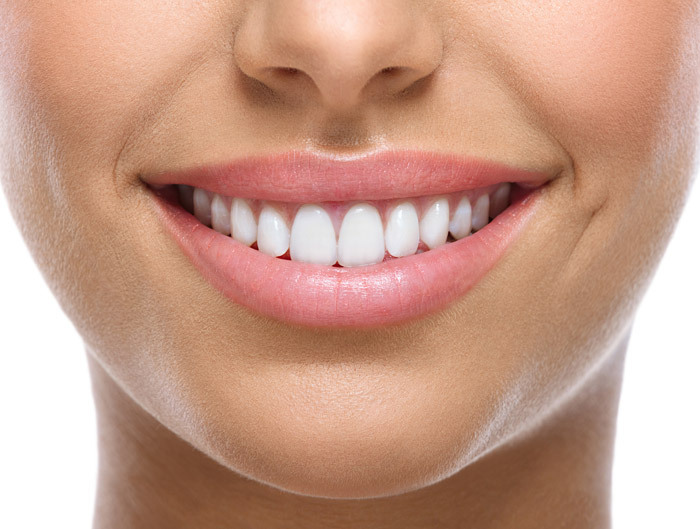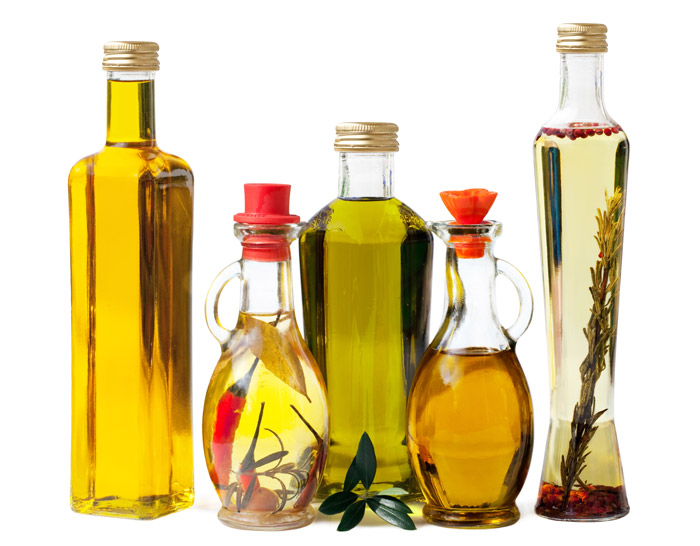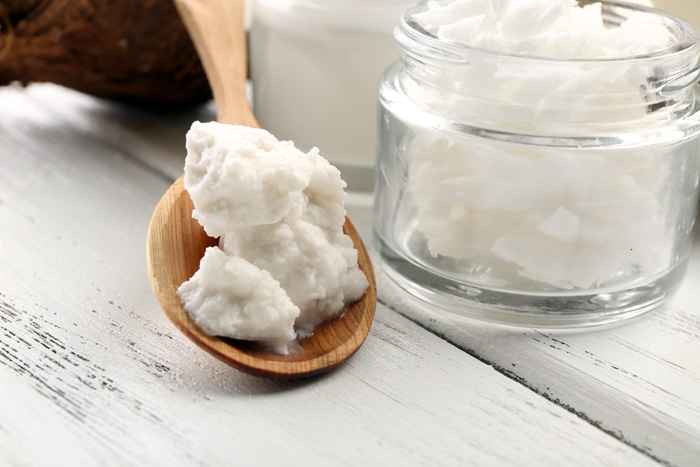Table of Contents
Achieving and maintaining good health often requires a lot of hard work, dedication and willpower. It can be difficult, for instance, to overcome our lifelong addictions to wheat and refined sugar. Giving up tobacco? Even worse. And let’s not forget the dread many of us feel upon realizing it’s gym day (ever seen a group of people on a cardio machine who look like they’re enjoying it?)

Stock photography models don’t count
That said, there are a number of techniques we can incorporate into our daily lives that are quick, easy and good for us. Drinking lemon water upon waking to stimulate the digestive system is one of them. Dry brushing before a shower to boost blood circulation is another one. And then there is the most powerful health-boosting technique of all: oil pulling!
What Is Oil Pulling and How Does It Work?
Oil pulling, also called oil swishing, is the ancient Ayurvedic practice of swishing an antibacterial oil around the mouth for between 15-20 minutes, ideally first thing in the morning, to kill acid-producing oral bacteria like Streptococcus mutans.
That’s it. Don’t let anyone tell you it’s anything more complicated than that.
That doesn’t mean that regular oil pulling doesn’t benefit other parts of our body, because it does. You see, oil pulling is based upon the historical understanding that all infectious and degenerative diseases start in the mouth. Even modern medicine, which seldom embraces a holistic approach, acknowledges this fact.
That’s why so many people find that regular oil pulling leads to health benefits above and beyond improved oral health. Weight loss, relief from rheumatoid arthritis, clearer skin and eyes, reduced body odor, increased energy and immunity… there doesn’t seem to be a single condition that oil pulling cannot at least improve. By reducing our toxic load in the one place where toxicity thrives the most (namely, the moist cavities of our mouths), our bodies can deal with other issues unhindered.

Whiter teeth is one of the most noticeable health benefits of oil pulling, but it’s far from the only benefit
Research into the Health Benefits of Oil Pulling
Though celebrated in its native India since time immemorial, oil pulling is a relatively new phenomenon in the West. Indeed, it only became known to us in the early 1990s when the Ukrainian oncologist, F. Karach, began promoting it – and even then, it took a long time for researchers to start taking it seriously.
Consequently, most research into oil pulling tends to be quite recent… but better late than never, I guess.
Studies into oil pulling have reached the following conclusions:
In essence, oil pulling helps remove the bacteria (of which S. mutans is the best-known) associated with bad breath, gingivitis, gum disease and other oral diseases, much like chlorhexidine. Unlike chlorhexidine, however, oil is cheap to purchase and is far more natural.
If you’d like to learn more about the science behind oil pulling, I recommend Dr. Bruce Fife’s book Oil Pulling Therapy: Detoxifying and Healing the Body Through Oral Cleansing.
Which Oil Is Best for Oil Pulling?

“But choose wisely, for while the true Grail will bring you life, the false Grail will take it from you”
Those of you who looked into the studies I mentioned above probably noticed a trend: all of them used sesame oil. This is understandable, since sesame oil is one of the two oils (the other being sunflower oil) recommended by the Ayurveda for oil pulling.
However, it’s self-evident that the Ayurveda recommended sesame and sunflower oil simply because these were the two healthiest oils available in India at the time. In reality, any oil with proven antibacterial properties will have a positive effect, and some modern oils are even healthier than sesame and sunflower oil.
Take coconut oil, for example. This delicious-tasting oil, widely considered to be the healthiest cooking oil in the world, is comprised of approximately 50% lauric acid – one of the finest antibacterials, antimicrobials, antivirals and antifungals in nature. Unsurprisingly, then, coconut oil is proven to be a fantastic oil for oil pulling.
One study published in the Nigerian Medical Journal in 2015, for instance, found that oil pulling with coconut oil helped reduce plaque formation and plaque-induced gingivitis in adolescent boys (6). Another study, which compared the microorganism-fighting abilities of all the oils commonly used in oil pulling, reached a more revealing conclusion: Coconut oil and coconut oil alone demonstrated antimicrobial activity against both S. mutans and C. albicans (7).
So, the results are in: Coconut oil is the best oil for oil pulling. (Just make sure it’s unrefined coconut oil, since refined coconut oil suffers from a damaged fatty acid profile that compromises its antibacterial and antimicrobial properties.)

Seriously, is there anything coconut oil cannot do?
How to Oil Pull
If you’re interested in trying oil pulling, follow the simple instructions below. This is my personal oil pulling protocol, which gave me positive results within weeks. You will need a toothbrush, some unrefined sea salt and coconut oil (if coconut oil is unavailable, sesame oil is the second best alternative).
And that’s it! For optimum results the protocol should be done daily, but don’t worry if you miss a day or two.

Don’t worry, oil pulling doesn’t need to be done while staring at yourself in the mirror
Frequently Asked Questions
If you can’t stomach oil pulling in the morning then I recommend doing it before lunch, since there is almost as much bacteria in the mouth at this time as upon waking. After eating lunch, our oral bacteria levels continue to fall throughout the day, eventually reaching their lowest point after dinner.
Of course, oil pulling will always benefit you regardless of when it is done. Three minutes of it using a refined vegetable oil at midnight will still remove more bacteria than no oil pulling at all.
However, I recommend drinking the water through a stainless steel straw to prevent it from swishing around your mouth and taking bacteria down with it.
If you find the aching unbearable at first, start oil pulling for 5 minutes per day and work your way up to the full 20 minutes.
I recommend doing something productive while oil pulling, such as making the bed or showering, to divert your attention from it.

Yeah, it’s gross. But you get used to it, I promise
After one week: Improved body odor and breath, cleaner mouth, improved energy and mood
After two weeks: Brighter and whiter teeth, healed gums, clearer skin and eyes, healthier hair, more regular bowel movements
After one month: Possible reversal of tooth decay and relief from chronic health problems
I’ve been oil pulling with coconut oil for over 5 years and I’ve experienced a noticeable improvement in gum and tooth health, body odor, and skin and hair quality.








